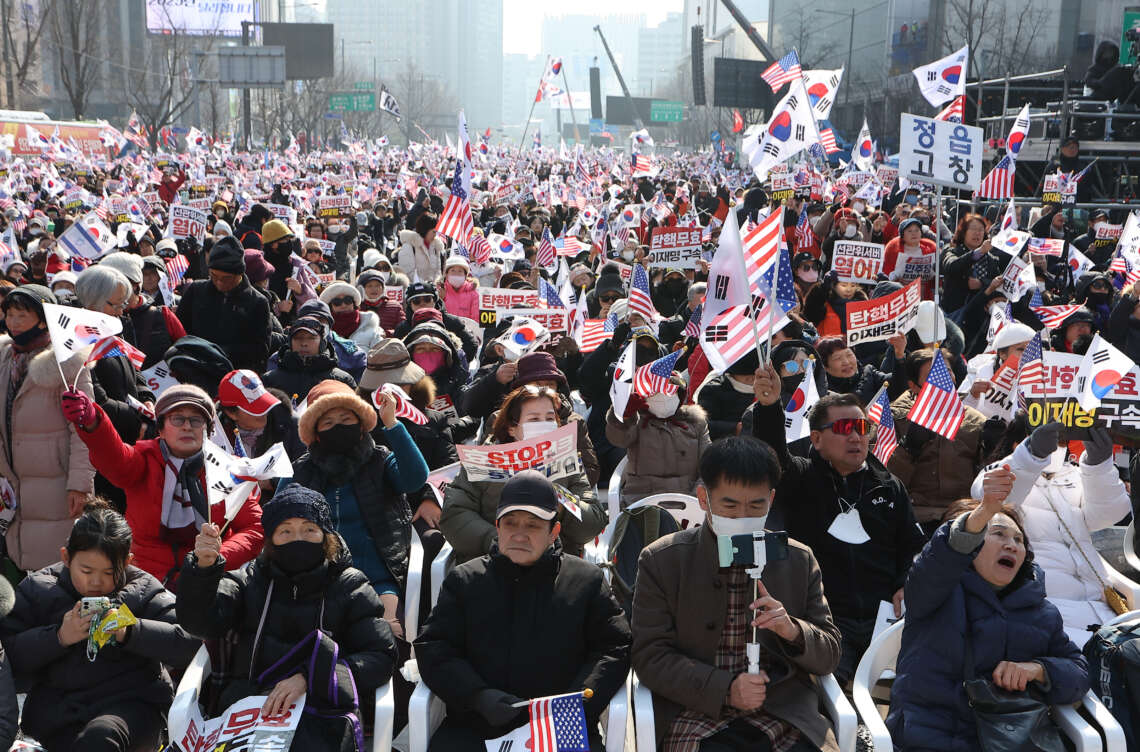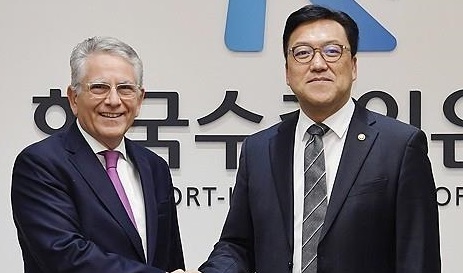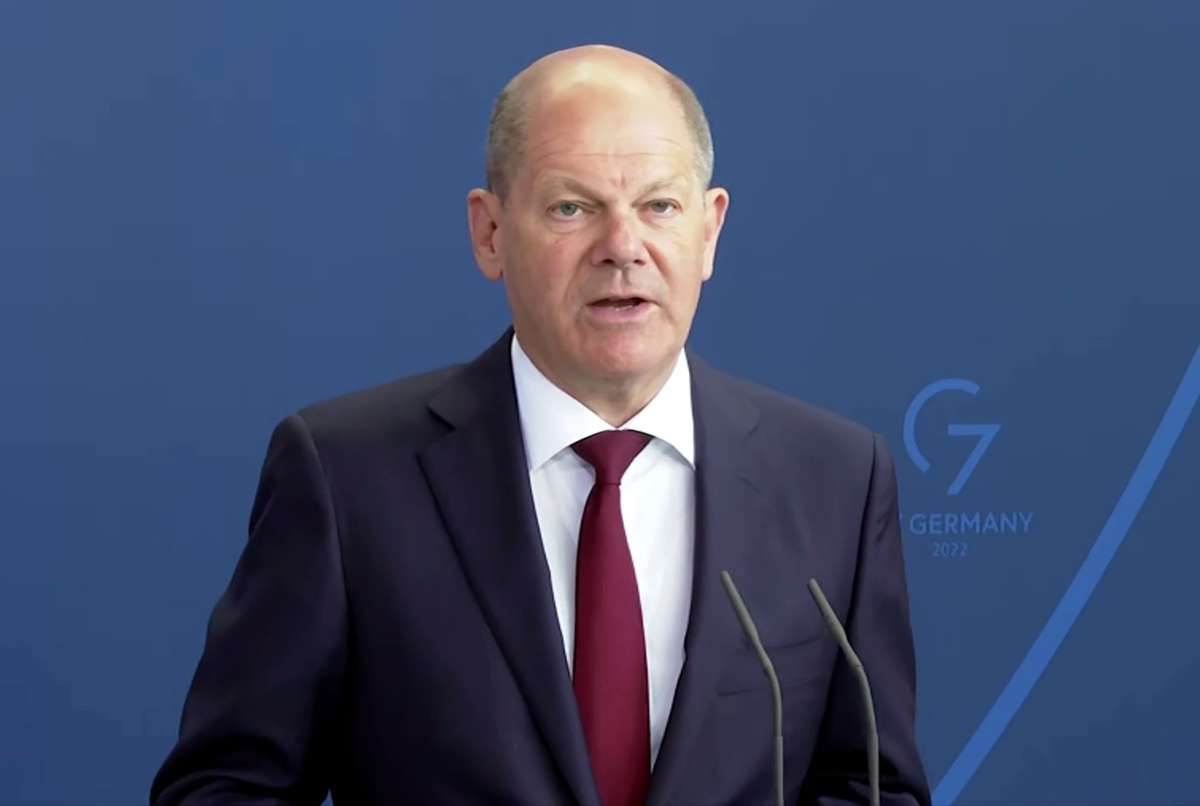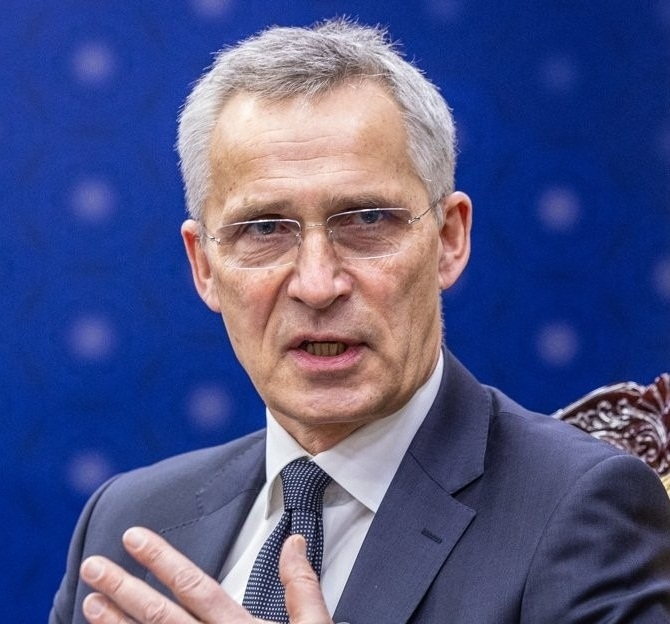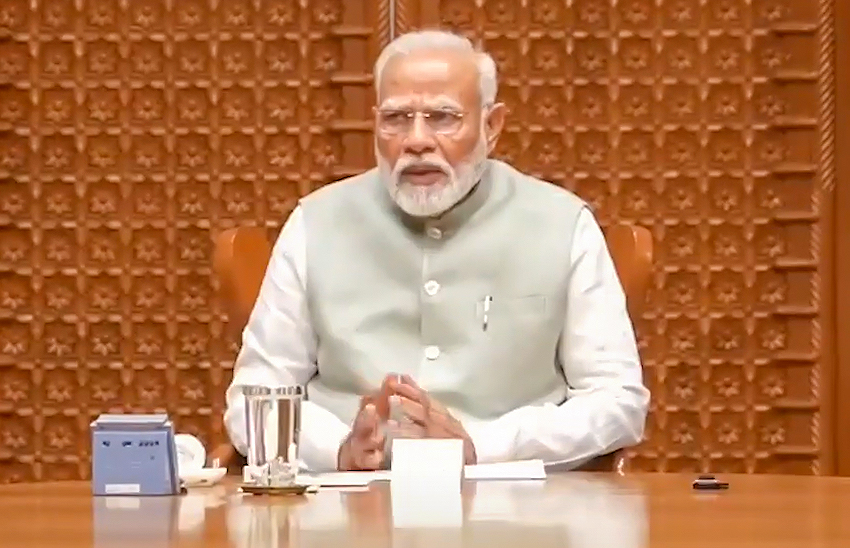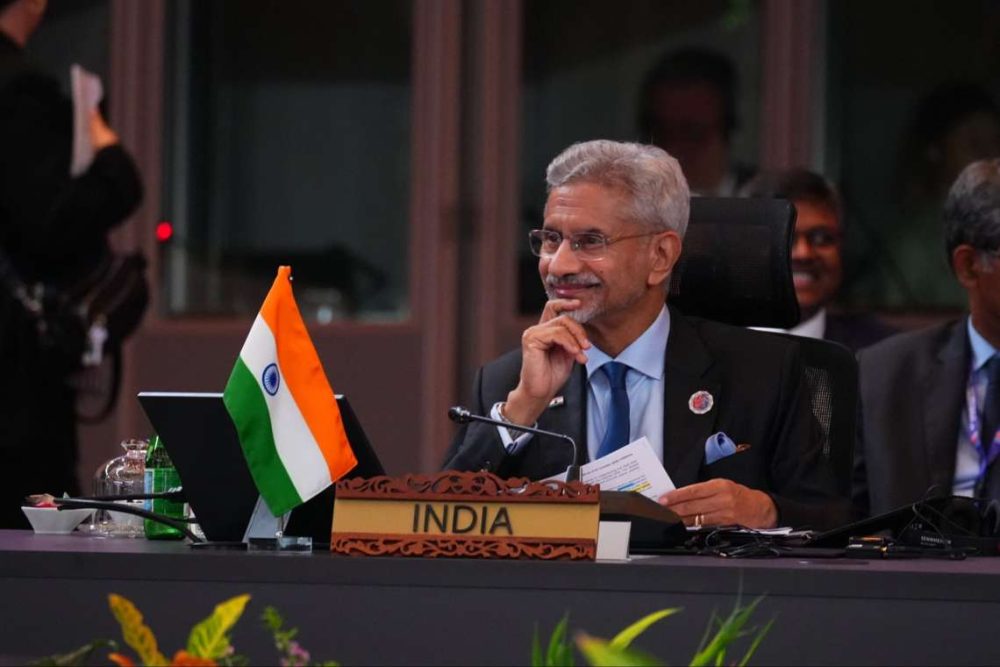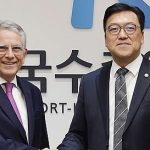An estimated 3 million people, according to organisers, thronged Seoul’s central Gwanghwamun area, waving the Taegeukgi and the Stars and Stripes …reports Asian Lite News
Crowds of protesters gathered in South Korea’s Seoul on Saturday in massive rallies, either opposing the ouster of impeached South Korean President Yoon Suk Yeol or urging his removal from office, following his recent indictment under physical detention.
An estimated 3 million people, according to organisers, thronged Seoul’s central Gwanghwamun area, waving the Taegeukgi and the Stars and Stripes and calling for Yoon’s release in a rally opposing his impeachment.
Last Sunday, prosecutors indicted Yoon with physical detention on insurrection charges over his short-lived declaration of martial law on December 3. The following week, the National Assembly voted to impeach Yoon, prompting a Constitutional Court trial to decide whether to reinstate or permanently remove him from office.
“Yoon Suk Yeol will be made to come back if 10 million people gather on March 1. (We) can change everything, whether it’s the Constitution or anything else,” said conservative activist pastor Jeon Kwang-hoon, who spearheaded the rally, referring to a mass gathering he is planning on that date.
The police’s unofficial estimate of the participants was 38,000.
Similar rallies in support of Yoon were also held near the National Assembly in Seoul’s western Yeouido district and in front of the Seoul Central District Court in southern Seoul.
Also in Gwanghwamun, a separate rally urged a Constitutional Court ruling to oust Yoon, with 100,000 participants according to organisers. The police estimated the number at 6,000.
Participants called for the “immediate removal” of Yoon, while also criticising acting President Choi Sang-mok for vetoing a parliamentary bill calling for a special counsel investigation into Yoon over the martial law declaration.
“Let us completely end, with the power of the people, the insurrection scheme by the anti-Constitution forces, including Yoon Suk Yeol and the (ruling) People Power Party,” said Kim Min Moon-jung, who spearheaded the rally against Yoon.
Some 240 traffic police personnel were mobilised in Seoul as the mass rallies caused traffic congestion and other inconveniences.
Last month, Yoel denied that he ordered the military to drag lawmakers out of the National Assembly to prevent them from voting to reject his martial law decree last month, as he appeared for the first time before the Constitutional Court that will determine his fate.
Yeol’s presence at the court was his first public appearance since becoming South Korea’s first sitting president to be detained over his short-lived declaration of martial law, which plunged the country into political turmoil.
After abruptly imposing martial law on Dec. 3, Yoon sent troops and police officers to encircle the National Assembly, but enough lawmakers managed to enter to vote unanimously to reject his decree, forcing Yoon’s Cabinet to lift the measure early the following morning.
Yoon, a conservative, has since argued that his dispatch of troops was not meant to block the assembly but instead was a warning to the main liberal opposition Democratic Party, which has used its legislature majority to obstruct Yoon’s agenda, undermine his budget bill and impeach some of his top officials. In his announcement of martial law, Yoon called the assembly “a den of criminals” that was bogging down government affairs, and vowed to eliminate “shameless North Korea followers and anti-state forces.”
The commanders of military units sent to the assembly have disagreed with Yoon’s stance. Kwak Jong-keun, commander of a special forces unit, told an assembly hearing that Yoon had called him directly and asked that his troops “quickly destroy the door and drag out the lawmakers who are inside.” Kwak said he didn’t carry out the order.
Asked by acting Constitutional Court chief justice Moon Hyungbae whether he ordered the commanders to pull out the lawmakers, Yoon replied that he didn’t do so.
Yoon said the lawmakers could have gathered somewhere later to overturn the decree. He also argued that there would have been a popular backlash if he had tried to physically prevent an assembly vote. “If I had obstructed (the vote), I think I wouldn’t have been able to handle the consequences,” Yoon said.
Asked by Moon about reports that he gave a memo on establishing an emergency legislative body to a top official before imposing martial law, Yoon said he didn’t do so. Whether Yoon plotted to launch such a body would help explain his true intentions for martial law.
The assembly impeached Yoon on Dec. 14, suspending his presidential powers. The Constitutional Court has until June to determine whether to formally dismiss him as president or reinstate him. Observers say a court ruling is expected to come sooner.
Separately, law enforcement authorities are investigating whether Yoon and others committed rebellion, abuse of power and other crimes in connection with the martial law decree. By law, the leader of a rebellion can face life in prison or the death penalty.
Yoon earlier ignored several requests to appear for questioning and remained in his presidential residence in Seoul, though his defense minister, police chief and several top military commanders had already been arrested over their roles in the enforcement of martial law. He was eventually detained on Jan. 15 when authorities mobilized hundreds of police and investigators near his residence.
ALSO READ: Gaza Rejects Trump’s Plan


